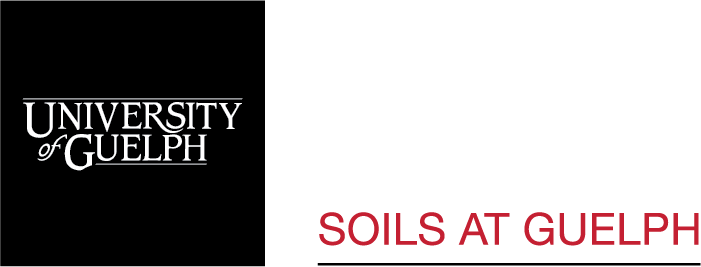Podcasts
When a University of Guelph researcher is featured in a soil related podcast, Soils At Guelph wants to share it!
Check out the collection of podcasts below. If we’ve missed one please let us know, soils@uoguelph.ca.
Podcasts in the news - Interviews with UofG Researchers
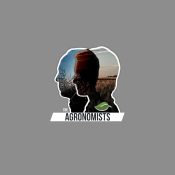


The Agronomists, Ep 146: Saving nitrogen with Bryce Geisel and John Lauzon
Nitrogen fertilizer can be lost through volatilization, leaching, or denitrification depending on conditions. Farmers can adapt application practices and timing to minimize loss, and they can choose to have nitrogen fertilizer treated with an enhanced efficiency product. For a discussion on losses, loss management, and what product to use and when, this episode of The Agronomists features John Lauzon with the University of Guelph, and Bryce Geisel of Koch Agronomic Services, to compare and contrast east vs. west conditions, loss risks, and more!


Listen for the noise in nitrogen economics
What’s the most economic rate of nitrogen for corn? Where is that line between feeding the crop the right amount of the yield-producing nutrient and wasting dollars on excess product? University of Guelph sustainable cropping systems professor Dr. Adrian Correndo says a lot of field trials and research brainpower has been invested in identifying an economic optimal nitrogen rate (EONR) but it’s incredibly difficult to peg a specific number that growers can plug into cropping budgets. When it comes to corn nitrogen rates “uncertainly is king,” he notes.



The Agronomists, Ep 97: Love your soil microbes with Drs. Kari Dunfield and Bobbi Helgason
Soil is alive and full of billions (yes billions) of fungi, bacteria, protozoa and more, performing key soil functions such as nutrient cycling, creating pores, and adding stability to soil structure. But how much do we understand of our soils? And can we take steps to love these good bugs and get rid of the baddies? To explore what lies beneath, this episode of The Agronomists features Dr. Kari Dunfield, with the University of Guelph, and Dr. Bobbi Helgason, with the University of Saskatchewan.
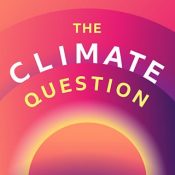

The Climate Question: Can we feed the world without using chemical fertilisers?
Synthetically produced nitrogen fertilisers produce a potent greenhouse gas called Nitrous Oxide which is 265 times more warming than carbon dioxide. But is it feasible to ban synthetic nitrogen fertilisers or would that risk plunging the world into mass food insecurity? Join presenters Qasa Alom and Graihagh Jackson as they journey from an urban garden in Sri Lanka, where a radical fertiliser ban caused chaos, to eastern Africa where Kenyan farmers are mixing tradition with new technology to try and save the world’s climate, and its soils.
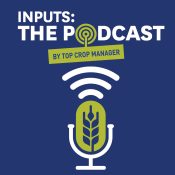

Graduate Research Showcase: Understanding the effects of winter wheat planting dates in Ontario
When do you plant winter wheat? There may be an ideal date that comes to mind based on where you farm, but the reality is there are plenty of factors that affect when you actually get the crop in the ground. This episode of Inputs features Emma Dieleman, graduate student at the University of Guelph’s Ridgetown Campus conducting her research under the supervision of Drs. Dave Hooker and Josh Nasielski. She is looking at the effects of different winter wheat planting dates and the use of harvest desiccants on soybeans when they precede winter wheat in rotation, and discusses why this research is timely, her results so far, and what she’s seen from this year’s winter wheat crop already.
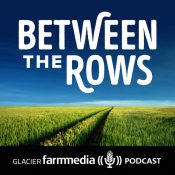

Between the Rows: Managing microbes, curbing climate change
The federal government wants growers to use less fertilizer to help reduce greenhouse gas emissions, but continuous yield growth is needed to feed an increasingly hungry population. Manish Raizada, professor of plant science at the University of Guelph, thinks nitrogen-fixing microbes have a big role to play in this arena; plus, nitrous oxide is a far more powerful greenhouse gas compared to its lesser, but more popular cousin, carbon dioxide. Richard Farrell, associate professor at the University of Saskatchewan, talks about how greenhouse gases in agriculture are measured and what can be done to rein them in.
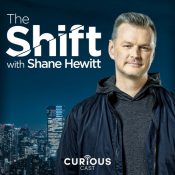

The Shift with Shane Hewitt: Joshua Nasielski, assistant professor at the University of Guelph shares why fertilizer and farming essentials are so expensive.
How are Canadian farmers surviving with skyrocketing fertilizer prices? Joshua Nasielski, assistant professor at the University of Guelph shares why fertilizer and farming essentials are so expensive, where our fertilizer really comes from, and just how important it is to our food supply.
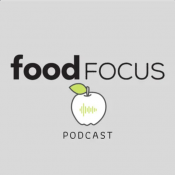



Food Focus: Conflicting Incentives? An Economist's Perspective on GHG Emissions Reductions in Crop Production
In this episode Mike speaks with Dr. Alfons Weersink, Professor in the Department of Food, Agricultural, and Resource Economics at the University of Guelph, about GHG emissions from crop production. Alfons provides a perspective on the economic returns to fertilizer application and the implications for emissions from crop production. He also provides some insight into policy initiatives to help farmers adapt and reduce emissions.
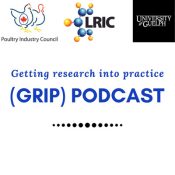

Getting Research Into Practice (GRIP): Wayne Caldwell -Professor- Rural Planning and Development -University of Guelph
This week we interview Wayne Caldwell who is a Professor of Rural Planning and Development at the University of Guelph. We interview researchers and industry professionals in different animal agriculture sectors who have been successfully applying research and innovations in their field. They will answer some of the industry’s burning questions so we can find out together what makes a successful innovation and what barriers keep some ideas from ever making it to industry or farms.




Food Focus: Reducing GHG Emissions from Crop Production
There is considerable discussion about reducing emissions across the economy. Mike's guest this week suggests that there are real ways to reduce emissions from crop production without dramatic disruptions in production and that we continue to learn more about approaches. Dr Claudia Wagner-Riddle does say that it will require more management but that we can get there.


Leadership Perspectives: Levelling Up with TELUS #4: Dr. Helen Hambly on Agriculture’s Digital Divide
Today, farming relies on digital tools as another key input. But is our digital infrastructure up to the needs of modern agriculture? Dr. Helen Hambly of the University of Guelph talks to Keara about the changing needs of agriculture—and how well Canada’s digital backbone is supporting farmers. Dr. Helen Hambly is a Professor in the School of Environmental Design and Rural Development at the Ontario Agricultural College, University of Guelph. Her research efforts support innovation among farmers and other stakeholders.


Project Save the World: 367 Your Food and Things that Fall from the Sky - Wagner-Riddle
Claudia Wagner-Riddle is an agrometerologist; she studies how agriculture affects climate change - both the production of plants and animals. The quality of soil is a key factor. Various essential bacterial in the soil produce nitrous oxide and other compounds of nitrogen which plants require, but which affect air and water negatively in several respects. By recycling animal manure, farmers can adequately replenish the nutrients in their soil, but about half of the people on the planet today are alive because they eat food produced by synthetic fertilizers.
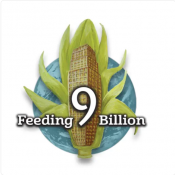

Feeding 9 Billion Podcast: Food Secure Future
With an ever expanding human population, how can we improve food security for the future, while reducing harm for the environment we live in and advancing human rights in the process? These are just some of the challenges tackled in the Food Secure Future podcast. Evan Fraser, Director of the Arrell Food Institute, is joined by researchers from the University of Guelph and other experts from the field to discuss the challenges and opportunities to improving food security for the future.
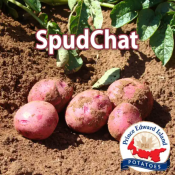

SpudChat: #23 Cover Crops with Dr. Laura Van Eerd
We cap off our three week focus on cover crops by talking to Dr. Laura Van Eerd, Professor and researcher with the University of Guelph at Ridgetown College in Southwestern Ontario. Ryan talks with Laura about her long-term cover crop research and some of the exciting findings from those trials so far.


The Grower Calling: Evan Fraser shares insight on food sovereignty
Two Ontario vegetable growers share different perspectives – one is contracting celery to an American food processor, another is worried about decreased plantings of field vegetables in his area. Karen Davidson, editor of The Grower, goes 'Behind the Scenes' of the September cover story and speaks with Dr. Evan Fraser, director of the University of Guelph’s Arrell Food Institute. Fraser comments on the competitive pressures within today’s food system. And shares his perspective on what’s needed for the next generation of farmers.
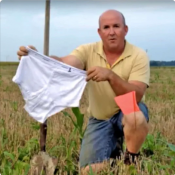

Urban Forestry Radio: Bury Your Briefs to Evaluate Soil Microbes
Learn why Canadian farmers are burying their briefs to find out if they have beneficial microbes in the soil! Our guests from the University of Guelph are Cameron Ogilvie, Knowledge Mobilization Coordinator and Kari Dunfield, Canada Research Chair in Environmental Microbiology of Agro-ecosystems.


Agronomy Geeks, Ep 23: Laura Van Eerd
What does it take to be a soil champion? If you're Laura Van Eerd, professor at University of Guelph, Ridgetown campus, it means being curious about soil biology and crop production and constantly fascinated about what we have yet to learn about nutrient cycles, microbes, and more.
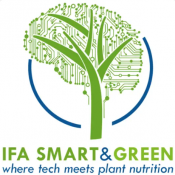

Biologicals in Action: Nitrogen Fixation
Manish Raizada, Professor in the Department of Plant Agriculture, University of Guelph and Marcus Meadows-Smith, CEO of BioConsortia talk with IFA’s Deputy Director-General, Patrick Heffer, about the benefits and potential of Nitrogen-fixing microbials as a tool available to farmers to improve plant nutrition.
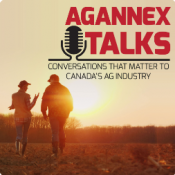

Agannex Talks: Influential Women in Agriculture Podcast Series: Laura Van Eerd
Laura Van Eerd, a professor at the University of Guelph Ridgetown Campus, is well-known for her soil fertility research which influences agriculture, not only in the province, but nationally and internationally. Van Eerd shares what motivates her, some personal career highlights, and what she's learned from mentors and her experiences along the way.


FARE Talk - Food, Agriculture and Resource Economic Discussions
The purpose of FARE-talk is to provide an enduring conversation about contemporary topics relevant to food, agricultural, and resource economics. Hosted by Dr. Brady Deaton, Department of Food, Agriculture and Resource Economics University of Guelph.
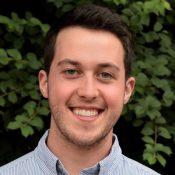

SPECIAL EPISODE - Regenerative Agriculture at General Mills: The Way Forward
Learn why food companies are investing in regenerative agriculture in this special episode recorded at a public lecture held back in September, 2019. Speaker Steve Rosenzweig, a soil scientist at General Mills leads research and outreach programs across North America to support farmers in improving soil health. Rosenzweig’s talk was followed by a panel discussion with Dan Petker, a farmer from Norfolk County; Anne Loeffler, a conservation specialist with Grand River Conservation Authority; Jim Barkley, an agronomist with Hensall District Co-op; and Paul Johnston, the farm products manager at Thompson’s Limited.
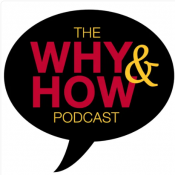

The Why & How Podcast: How does the soil impact the atmosphere?
Soil has superpowers. It can grow food and sustain life. But two researchers in the School of Environmental Sciences share their research on how it can also contribute to climate change. Kean Gao and Prof. Claudia Wagner-Riddle explain how different soil management practices affect our food security and our atmosphere.
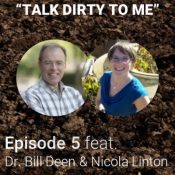

"Talk Dirty To Me" Episode 5 feat. Dr. Bill Deen and Nicola Linton
For a World Soil Day special episode, and the final installment in the “Talk Dirty To Me” miniseries, Cameron is joined by Dr. Bill Deen and Nicola Linton from the University of Guelph. Bill and Nicola talk about how different crop rotations and tillage practices impact the soil, crop production, and the environment based on discoveries from a 40-year experiment in Elora, ON. Hang in until the end to catch a montage of reflections on what we need to appreciate more about soil, from attendees at this year’s Latornell Symposium. It’s a special capstone to this series; we hope you’ve enjoyed it!
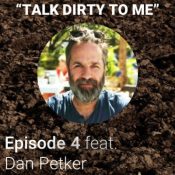

“Talk Dirty To Me” Episode 4 feat. Dan Petker
Series host Cameron Ogilvie managed to catch up with Norfolk County farmer Dan Petker (@PetkerFarm) in the combine cab to learn about his pursuit of soil health. Dan offers both a hopeful and critical perspective on what it takes to improve soil and loves to talk about the economic burden of sustainable soil management practices.
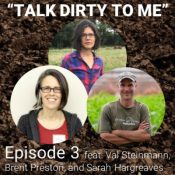

"Talk Dirty To Me" Episode 3 feat. Val Steinmann, Brent Preston, and Sarah Hargreaves
On this episode, Cam takes a trip to Heartwood Farm & Cidery to catch up with some friends from the Ecological Farmers Association of Ontario (EFAO). Val Steinmann and Brent Preston are both farmers involved with EFAO’s award-winning farmer-led research program, coordinated by Sarah Hargreaves. Together they talk about the importance of soil for their operations, how EFAO has supported them to discover innovative ways to improve soil, and the results of a recent soil health benchmarking study.
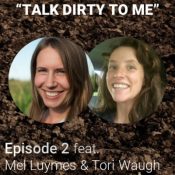

"Talk Dirty to Me" Episode 2 feat. Mel Luymes and Tori Waugh
Series host Cameron Ogilvie talks with Mel Luymes and Tori Waugh about the state of Ontario’s agricultural soils and how the Ontario Soil Network, a farmer-to-farmer learning network, is improving soil health across the province.
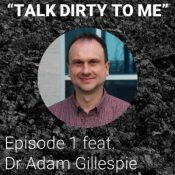

"Talk Dirty to Me" Episode 1 feat. Dr. Adam Gillespie
We’re pleased to bring you this series on soil health in partnership with the @SoilsAtGuelph initiative. On this episode, series host and Outreach and Communications Coordinator Cameron Ogilvie chats with Dr. Adam Gillespie to lay the groundwork for this series: What is soil? What makes for a healthy soil? And what is the state of our soils in Ontario?




Food Focus: The Trade-offs of Supply Management
In this episode, Dr. Alfons Weersink, Professor in the Department of Food, Agricultural and Resource Economics at the University of Guelph discusses the implications of supply management from farmer to consumer. Transcript available on the website.


AGEconMT Episode 028: The Average Farmer No Longer Exists: Reasons and Implications
Anton chats with Dr. Alfons Weersink, professor in the Department of Food, Agricultural, and Resource Economics at the University of Guelph. The discussion focuses on the increasing heterogeneity of farms: why do farms look more different from one another today than at any time in the past? Dr. Weersink helps provide a historical perspective.
